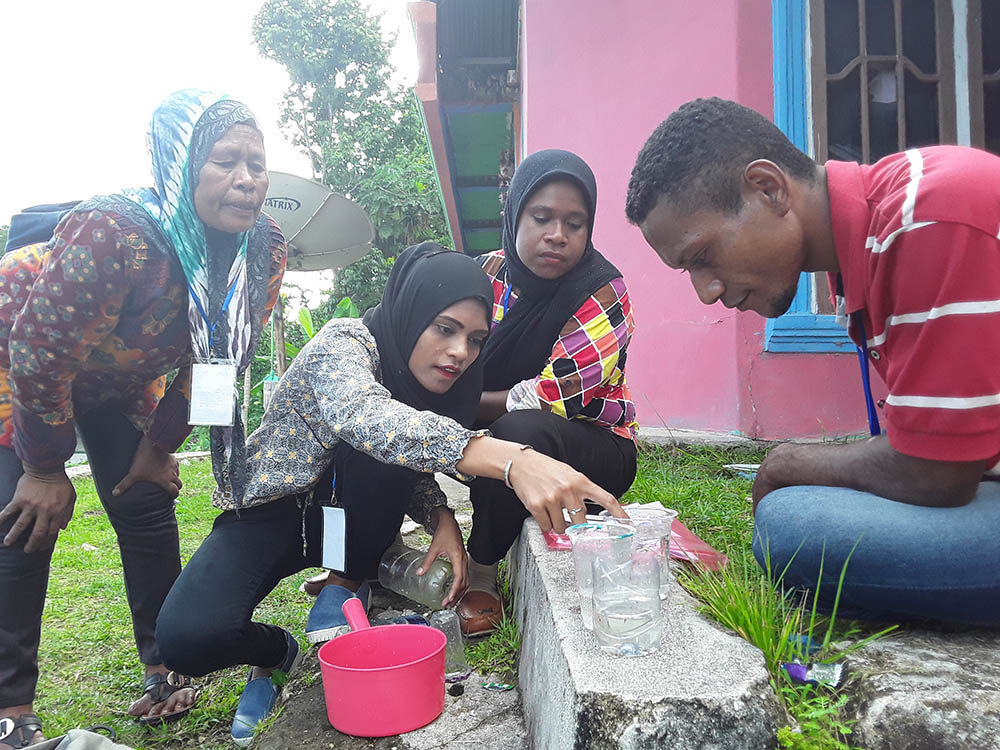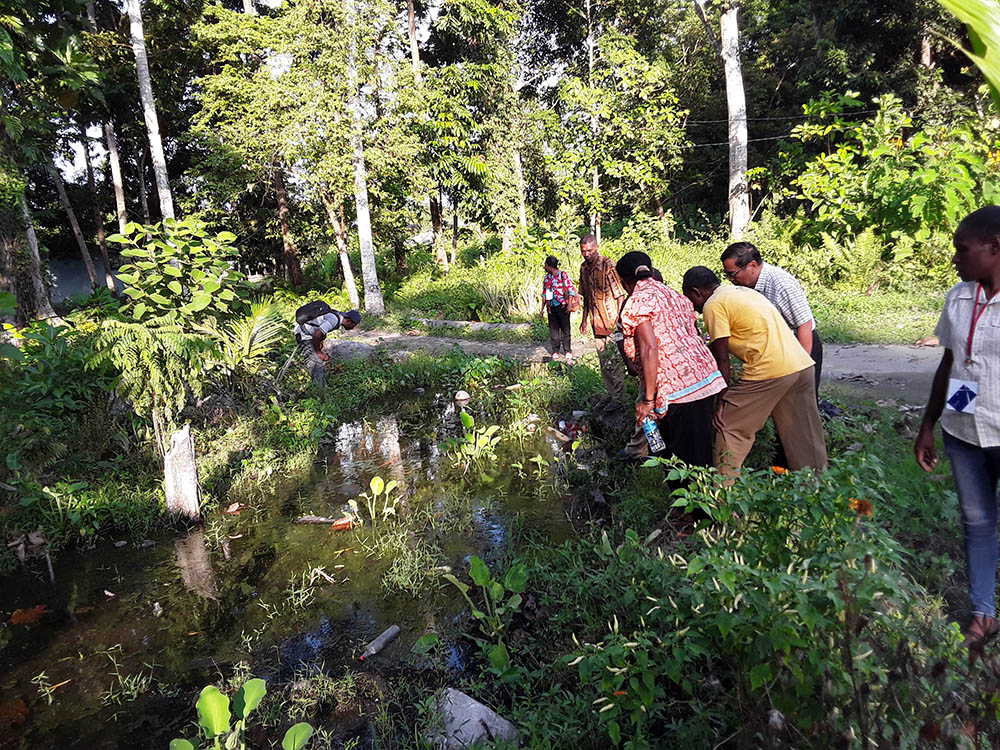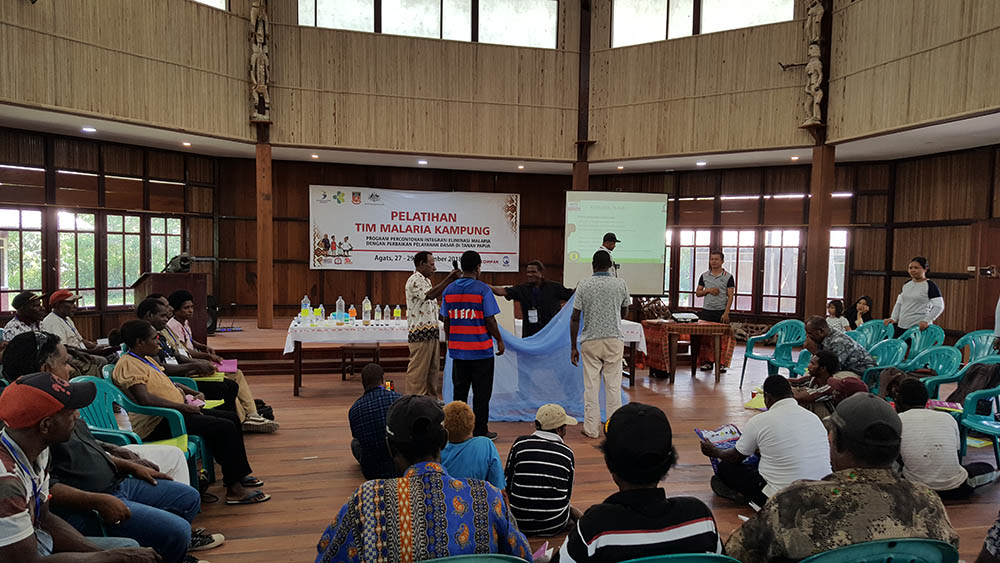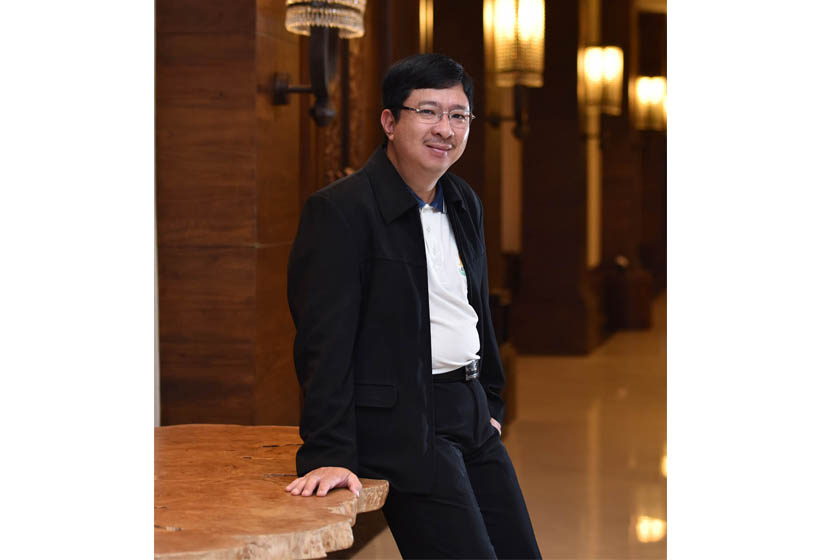A group of Australia Awards Scholarships – Short Term Awards alumni from across Papua and West Papua, and part of the 2016 to 2018 cohorts, are banding together to fight malaria. The person behind this is Dr Victor Eka Nugrahaputra, Head of the Health Service Division at the West Papua Health Office and alumnus of the 2016 Malaria Prevention and Treatment for Infants, Children and Pregnant Women in Eastern Indonesia at the Nossal Institute for Global Health, funded by the Australian Government through the Australia Awards.
Dr Victor’s effort is driven by his love for the island of Papua. “After completing my medical degree in 1995, I was determined to serve outside of Java. Not just to neighbouring islands like Kalimantan and Sulawesi, but to what is then Irian Jaya, despite the conflict at the time,” Victor reminisced.
“After three years of serving my mandatory medical service, I fell in love with the island of Papua. I felt that my presence is needed there, and so I stayed.” Victor, who was born in Sidoarjo, East Java, has now served in West Papua for more than two decades.
The collaborative effort started with a single project. At the time of the first malaria short course in 2016, the various groups of alumni each presented a project for the fight against malaria. Victor and five other alumni from West Papua developed Kebas Malaria (Keluarga Bebas Malaria, or Families Free of Malaria, though the shorthand is also a play on the word “swat”), a project that aimed to increase malaria and malaria prevention awareness across the province.
During the post-course workshop in 2016, the mentors from Nossal Institute for Global Health reminded the alumni to develop their network and to maintain continuity of their projects. This struck a chord with Victor. “As an alumnus of the first malaria short course cohort, I felt incredibly challenged to achieve those two goals. I saw that to ensure continuity of Kebas Malaria we would need to engage with several stakeholders,” Victor said.
Aside from keeping in touch with the other projects to support one another, in 2017 the Kebas Malaria team approached Indonesia Governance for Growth (KOMPAK), an Australia–Indonesia partnership project, who provided Kebas Malaria with a consultant on drafting the guide, technical instructions and other matters.
The response to Kebas Malaria was overwhelmingly positive. Kebas Malaria even had its own theme song that the Ministry of Health—through the Healthy Archipelago (Nusantara Sehat) team—used to educate children at the various public health centres across West Papua.
Over the years, Kebas Malaria has evolved and been integrated into other existing projects. Its message is now included in the Healthy Family Information and Education Packet as part of the Healthy Indonesia Through Family Approach (Program Indonesia Sehat dengan Pendekatan Keluarga) project, which has reached at least 26,200 families through visitation and early intervention by public health centre staff.
Despite the success of Kebas Malaria, Victor realised that it would take a long time to achieve malaria eradication if the issue were to be tackled from just one angle. “We could probably reach the national goal of malaria eradication by 2030, but not sooner. If we instead approach this from every angle, every direction, covering a vast expertise—even if it takes an enormous energy to do so—we would have a much greater opportunity to eradicate malaria earlier,” Victor said.
In 2017, alumni of the second cohort who started the Bela Kampung (Bebas Malaria Kampung, or Malaria Free Villages) approached Kebas Malaria to collaborate. KOMPAK agreed to the proposal. Bela Kampung, which can also mean “to defend the village”, reinforces the health service facilities of public health centres in relation to malaria eradication, be it preventive, diagnostic, therapeutic or surveillance. The effort is carried out from village-to-village level with the goal to reach the regency and provincial level.
In due course, Detik (Detektif Jentik, of Larvae Detective), another project of the second cohort, also joined the effort. Detik—a play on the word “second”, indicating time—engages primary school students in identifying mosquito breeding grounds at their homes and playgrounds and to report it to their teachers and public health centre staff if they found any.
In 2018, the consultant from KOMPAK had the opportunity to join the third cohort of the short course. The resulting project, Emas (Eliminasi Malaria oleh Masyarakat, or Malaria Eradication by the Community) joined the previous three projects. Emas, which also means “gold” in Indonesian, is aiming to equip villagers to have the capacity to draft a data-based malaria prevention and control plan by 2019, to carry out self-sufficient community-based surveillance by 2020, and to independently carry out malaria prevention measures by 2022.
“Kebas Malaria and Bela Kampung were the ideas of alumni from West Papua, whereas Detik and Emas were the brainchild of alumni from Papua. The collaboration amongst these programs not only spans three cohorts, but also two provinces,” Victor enthused.
“Timothy Moore, our mentor and a Senior Technical Consultant at the Nossal Institute for Global Health, reminded us that we are the leaders in our fields and levels of expertise,” Victor recalled. “We have to have the right motivation and a strong one. That is what Papua and West Papua needs right now to fight malaria.”
According to Victor, KOMPAK has set the collaboration as a malaria eradication integration through basic service improvement pilot program, which was carried out at Fakfak Regency and South Manokwari Regency (West Papua), as well as Jayapura Regency, Nabire Regency and Asmat Regency (Papua) in 2018–2019. The pilot program has just completed its monitoring phase at the end of February through March 2019.
With such strong motivations for the land they love, these alumni and leaders will certainly reach their goal of a malaria-free island of Papua.





 Banding together to eradicate malaria in Papua and West Papua
Banding together to eradicate malaria in Papua and West Papua
